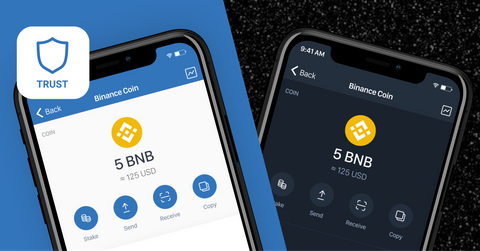Is It Safe to Keep Coins in a Binance Wallet? Privacy Issues Debunked
Some investors wonder if Binance is a safe platform for storing crypto coins. It all depends on which wallet you're using. Let's see what investors can expect.
Feb. 18 2022, Published 1:24 p.m. ET

Although the Binance exchange is the world's top crypto exchange, its wallet products aren't as popular. Is it safe to keep coins in your Binance Wallet?
Binance has announced its new blockchain, the BNB Chain, which is a rebranded version of the Binance Smart Chain. The BNB Chain will consist of two parts, the Smart Chain and the BNB Beacon Chain (previously known as the Binance Chain). While Binance aims for the Layer 1 blockchain to compete against Ethereum, some people worry the move might compromise Binance's decentralization.
Is storing crypto in you Binance wallet safe?
Binance offers two types of wallets—the Binance Chain Wallet and Trust Wallet. The Binance Chain Wallet is Binance's official browser extension wallet, while Trust Wallet, acquired by the company in 2018, is Binance's official mobile wallet. Both platforms are safe to use, assuming users practice proper privacy management. Let's take a closer look at the two products.

Binance Chain Wallet
The Binance Chain Wallet is available for Mozilla Firefox, Google Chrome, and Brave browsers. The wallet allows users to send and receive crypto on the Binance Chain and Binance Smart Chain.
The Binance Chain, the company’s first blockchain, hosted various decentralized applications, including Binance DEX. Meanwhile, the Smart Chain was built as an improvement to the Binance Chain. They aren't the same blockchain, but they work alongside each other.
The Chain Wallet allows tokens on the Binance and Binance Smart Chain to be exchanged on both networks interchangeably, but not with an Ethereum wallet. You can't send BNB from your Chain Wallet to an Ethereum-based wallet. To send ERC-20 tokens from a Chain Wallet, make sure you select the Ethereum blockchain as the network. Some of the wallet users have lost crypto because they used the wrong network.
MetaMask, where the MetaMask wallet’s default blockchain is Ethereum, can pose the same problem. Users have sometimes sent crypto to a non-Ethereum wallet and have forgotten to switch networks on MetaMask.
What's unique about the Binance Chain Wallet is that even though you hold on to your private keys, you can still access your wallet through Gmail if you lose them.
Similar to platforms that offer 2fa authentification, users can sign up for a Binance Chain Wallet account using a Gmail account, which allows users to recover their private keys through that email if they forget them. This can be thought of as an extra layer of protection. It doesn't force you to only rely on a seed recovery phrase if you forget your private keys.
Trust Wallet
The Trust Wallet offers a lot more than the Chain Wallet. It supports over 1 million assets and 53 blockchains. Users can send, receive, and hold cryptocurrencies and NFTs from different blockchains. The wallet is available for both Android and iPhone devices and has a similar interface to other mobile wallets, like Coinbase Wallet.
Because the Trust Wallet is a mobile wallet, users own their private keys, and the app won't hold on to them, which helps ensure safety. To recover private keys, the app will provide a recovery phrase that users will have to take note of.
